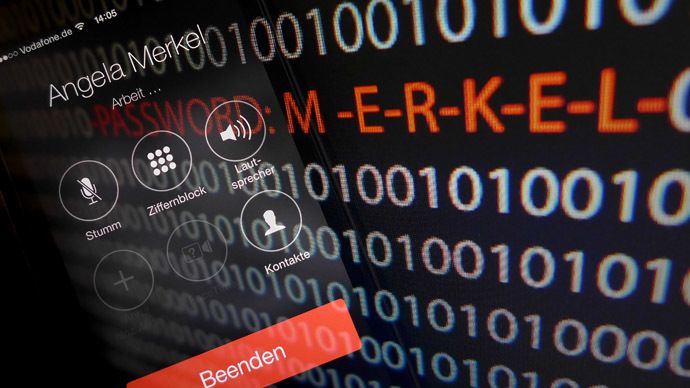Members of the German government will use encrypted phones as part of ‘urgent’ guidelines to protect against NSA snooping. The encryption software is not compatible with Apple, so Germany will phase out the use of iPhones at government level.
Germany’s two main political parties - the Christian Democratic
Union (CDU) and the Social Democratic Party (SPD) – have agreed
on new guidelines to ensure ministers are protected from having
their communications intercepted by spy agencies. As part of the
new regulations, politicians and high-ranking officials will be
required to make calls on encrypted phones.
Software approved by Germany’s Bonn Federal Office for
Information Security (BSI) will be used to protect phones from
outside meddling. The program itself is incompatible with Apple
technology, so German ministers will be forbidden from using
iPhones for official communications, reports newspaper The Local.
“Our conversations and communication structure have to be
safer,” the government report said in the wake of the spy
scandal that revealed Chancellor Angela Merkel’s communications
had been monitored by the NSA.
The German Chancellor addressed the reports of NSA spying on
Germany, leaked to the press by former CIA employee Edward
Snowden, on Monday at a parliamentary hearing. She slammed the
allegations of mass espionage as “grave” and said they had
put transatlantic relations “to the test.”
Merkel called on the US spy organization to clarify the future of
their activities in the European country to encourage “the
creation of a new transatlantic confidence.”
German Interior Minister Hans-Peter Friedrich also attacked
Washington’s handling of the NSA scandal.
"The Americans need to clear up the allegations, they cannot
become caught up in contradictions," Friedrich said.
Snowden’s security leaks revealed Washington’s extensive spy
program in Europe that recorded millions of phone calls and
intercepted electronic correspondence on a massive scale.
Furthermore, a report in October said that the NSA could have
been monitoring the communications of Chancellor Merkel since
2002.
It was also revealed the US had used the embassy in Berlin as a
base for spy operations.
German newspaper Der Spiegel reported that Merkel’s phone had
been listed by the NSA's Special Collection Service (SCS) since
2002 - marked as “GE Chancellor Merkel.” Moreover, the
Chancellor was still on the list just weeks before President
Barack Obama was due for an official visit to Berlin in June.
In response to the spy scandal Germany is pressing for a
no-spying agreement to be included in a transatlantic free-trade
deal.
“The negotiations for a free trade agreement are presently,
without doubt, being put to the test,” said Merkel on Monday.
Talks will be held with EU representatives in Washington in
December to finalize the agreement.
There have also been calls in Germany for the government to grant
whistleblower Edward Snowden asylum. Monday saw protesters gather
outside the Bundestag in support of the whistleblower who is
currently residing in Moscow where he has been granted temporary
political asylum.
Following the spy scandal, the German people’s trust in the US as
an ally has plummeted. A recent poll showed 35 percent still see
Washington as a reliable partner – a drop of 14 percent since
July.

